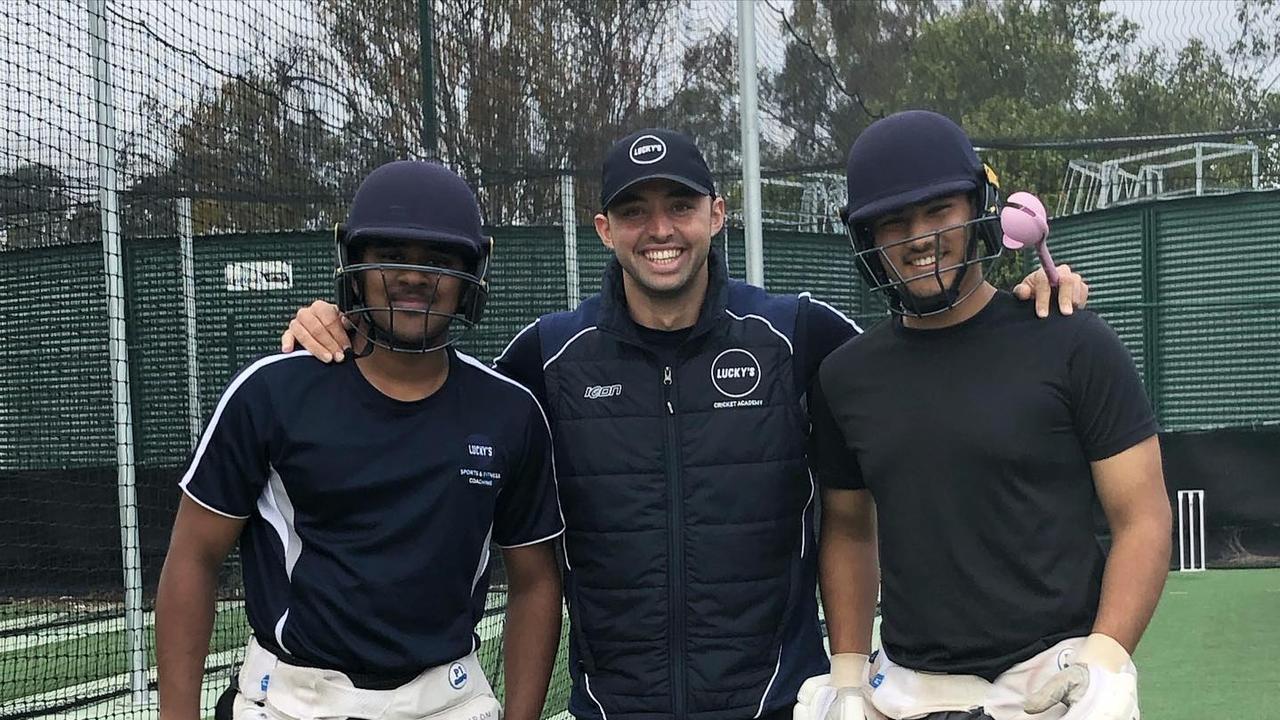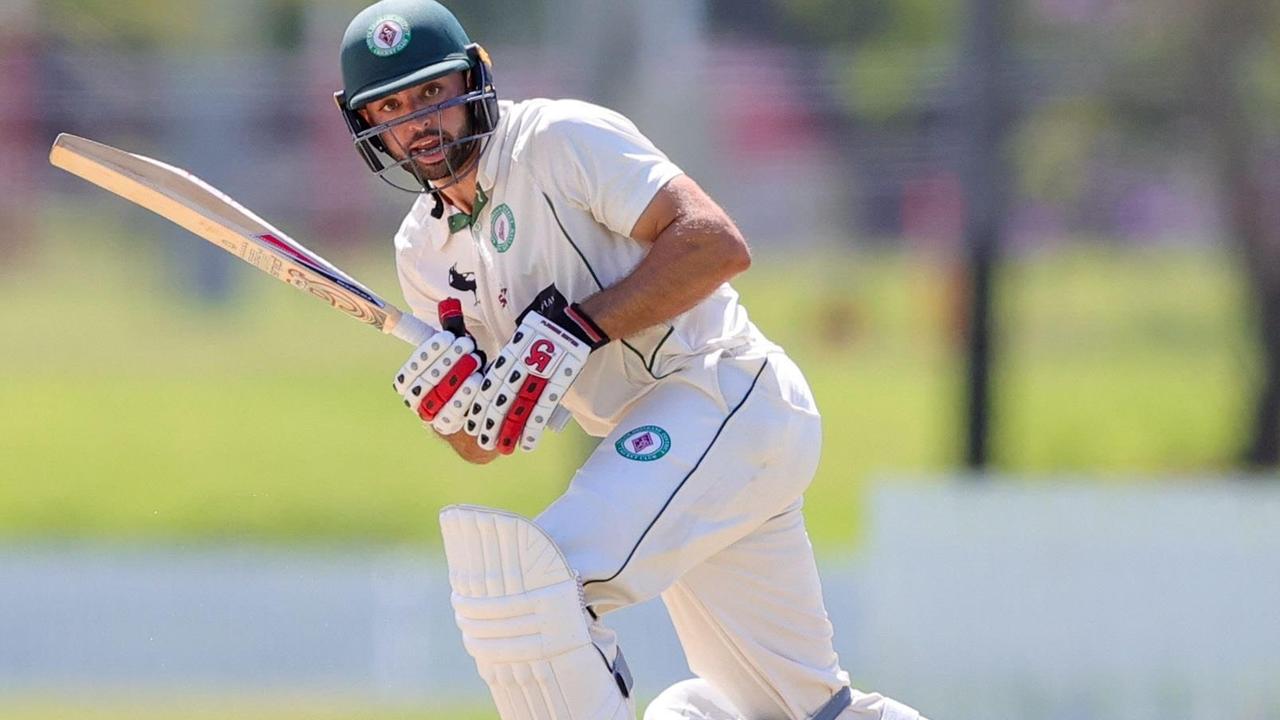How young Aussie recovered from gambling addiction after draining bank accounts on betting apps
From the outside, ‘Lucky’ was cheerful and outgoing. Inside, he was battling a demon that saw him drain his bank account every day.
In most aspects of his life, Lucky was just that.
The 27-year-old Brisbane man is a talented cricketer, university educated with a flourishing small business.
But for years, Emmanuel ‘Lucky’ Peterson’s cheerful facade hid a dark secret - an addiction that saw him hiding in the toilets and emptying his bank account “every single day” at its lowest points.
He was one of the Australians contributing to the country’s $25 billion dollar gambling industry.

The Australian Gambling Association released a report that showed young men (18-34) were the most likely to sign up to new gambling accounts, increase their frequency and monthly spending, from $687 to $1075, and be at risk of gambling-related harm.
Betting on sports is the second most popular market, following horse racing, according to the study.
For Lucky, it was partly a sporting lifestyle that led him to chase the highs of betting.
“I’d played in a Queensland under-19s side in January 2012 that won the national championship. I felt on top of the world, like I was invincible, and when I came back I found a few mates were into betting and horses and that’s how it started,” he said.
While Lucky’s betting started out casually - a few punts with friends over a beer at the pub, it quickly spiralled out of control when he began to use betting apps.
“I used to go into the TAB back then to place bets. It was a sad place, no one in there is smiling,” he explained.
“It just got really, really bad within the last four or five years. I was putting all my money on. I would start every day with zero dollars in my bank account then coach cricket all day, then deposit that money in my Sportsbet account and bet until there wasn’t any left at night.”
In an emotional post shared with other cricketers after deciding to come clean, Lucky detailed the depths of his ”obsessive cycle”.
“I’d bet in the car, at weddings, parties, toilet breaks, into the late hours of the night, mornings, before cricket and after cricket. It would be everywhere and anywhere at the touch of a button,” he said.
“Over the course of the last few years I would distance myself from my best mates, I would not pick up calls or make plans to see them, I would distance myself from my parents and family (as I was embarrassed and ashamed), my cricket and overall training suffered as I had no drive to train/(would) not be in the right mindset.
“I was constantly lying to my family, my GF (now ex) and my friends to keep it hidden even though those closest to me knew something was up (family, friends, cricket coaches).
“I didn’t want to see anyone or go anywhere and I was happy sitting alone at home hiding.”
Lucky said he knew he needed to come clean after one particularly low moment at a family event in March.
“We were all sitting at an RSL having drinks and I had $31 in my account (debit card and overall savings combined). The whole time I was there with friends I was as nervous as I didn’t have any money in my account as I had bought the first round of drinks,” he wrote in his post.
“I sat there petrified in case I had to go shout another round or even go buy lunch. This would happen on a regular basis hence why I would never head out with mates or spend money on things - I quite simply gambled it all.
“There are other examples of friends and family calling me on my way home from training to tell me to go past a shop and get some drinks or milk and I would be trying to find coins under my car seat to pay for it as I’d just emptied my account on a horse race which I’d lost.”
The day after the RSL event, Lucky opened up to his now then-girlfriend about the problem.
Taken by her response he made a lengthy post on social media explaining the problems he had with gambling and how he would change.
His sister took control of his finances, he started seeing a psychologist and banned himself from major betting applications.

There were waves of support for the cricketer who received more than 600 messages from friends – asking for help or applauding him for coming forward.
“I’ve had older cricket umpires message me about their problems, other people you wouldn’t expect. As well as dozens and dozens of people around my age,” he said.
Lucky now wants to further these by speaking in schools and sporting clubs about the dangers of betting.
“It has struck me, like, I run a cricket academy and we get guys in to speak about alcoholism and drug addiction and nothing about betting,” he said.
“It is all so accessible now. I was betting thousands and I never got any message of help from the betting agencies, I had an account manager who I’d speak to who’d give me tickets but it was never a question of whether I was coping.”

He is starting an organisation called Punt the Punt that hopes to bring awareness to the dangers of betting.
Besides his bank account, Lucky has noticed the benefits of controlling his addiction in other aspects of his life.
He is seeing a psychologist which has allowed him greater clarity with his business and his sport.
“I still have dreams of playing cricket for Queensland. Since I’ve knocked the gambling off I have that drive and hunger back,” Lucky said. “I’m enjoying playing again, I don’t think about money or this other stuff that was in my head.”
His performances have improved too with the South Brisbane skipper peeling off scores of 48, 73 and 65 runs in the first three rounds of cricket since coming clean about his problem.





